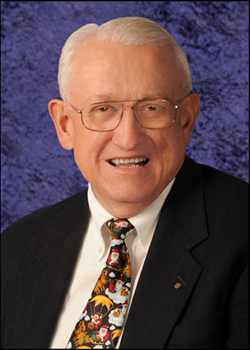Grandstanding politicians are always ready to pillory Facebook and other online services as destroyers of privacy. Silicon Valley tries to avoid thinking about igt. But how do ordinary folks really feel about the issue?
It’s hard to generalize based on a sample of four not randomly selected individuals. But based on what I heard from a panel of consumers at the Privacy Identity Innovation conference in Seattle May 14, these folks, at least, have a nuanced and generally accurate view of the state of online privacy.

One interesting conclusion from the panel, moderated by my friend and CBS Radio technology analyst and ConnectSafely.org co-director Larry Magid, is that privacy concerns are focused much more on the use of information by friends, enemies, potential employers, and other individuals than the on the possible sale of data by corporations. “My generation is pretty aware of the implications of putting information out,” said Landon Bennett, a University of Washington-bound Seattle high school senior. “It’s at the back of my mind at all times.” He admits that the world is becoming “more fishbowl like.”
Ralph Munro, born in 1943, brought the perspective of another generation. The former Washington secretary of state noted that the loss of privacy is nothing new. “I was raised in a house with no phone,” he said. “Our first phone was a party line and there was no privacy.” (For those of you too young to remember, a party line was a phone line shared by two or more families–a sort of primitive voice Twitter. To make a call, you had to listen to see if anyone else was using the line, and once there, you could eavesdrop to your heart’s content.)
Munro noted that people are perfectly willing to surrender privacy for small rewards. “People worry about privacy, but everybody signs up for a Safeway card. People are giving up their own privacy.” And when Munro suffered a serious illness a few years ago, his family sacrificed privacy to put out daily reports on CaringBridge. “I got messages from all over the world. I can’t tell you what that meant to me.” But, he admits, “Most people my age have no idea of the lack of privacy on the internet.”
Diana Henneuse, the mother of an eight-year-old daughter, shared the typical concerns of parents: “I’m concerned because of all the temptations out there. I worry about bullying and stalking. I want to be with her when she is on the computer.” And she worries that both children and adults spend their lives distracted by technology.
Imei Hsu is a psychotherapist and belly dancer and has the possibly unique problem of managing those two very different identities online. As a psychotherapist, a major preoccupation is protecting patient privacy and complying with the laws, such as the Health Insurance Portability and Accountability Act. “The laws need to catch up,” she said.”HIPAA and the like can interfere with the practice of medicine” by preventing practitioners from taking full advantage of communications technology.
When you listen to politicians such as, say Senator Al Franken (D-Minn.), you get the impression that Americans are cowering at the assault on their privacy by Facebook and Google. “The more dominant these companies become over the sectors in which they operate, the less incentive they have to respect your privacy,” Franken told the American Bar Assn. “When companies become so dominant that they can violate their users’ privacy without worrying about market pressure, all that’s left is the incentive to get more and more information about you.”
But based on what I heard from an admittedly limited sample in Seattle, that’s not where real peoples’ concerns lie. Their worries about online privacy are less corporate and much more personal and intimate. Privacy concerns are real, but the policy responses can seem like solutions in search of problems.
